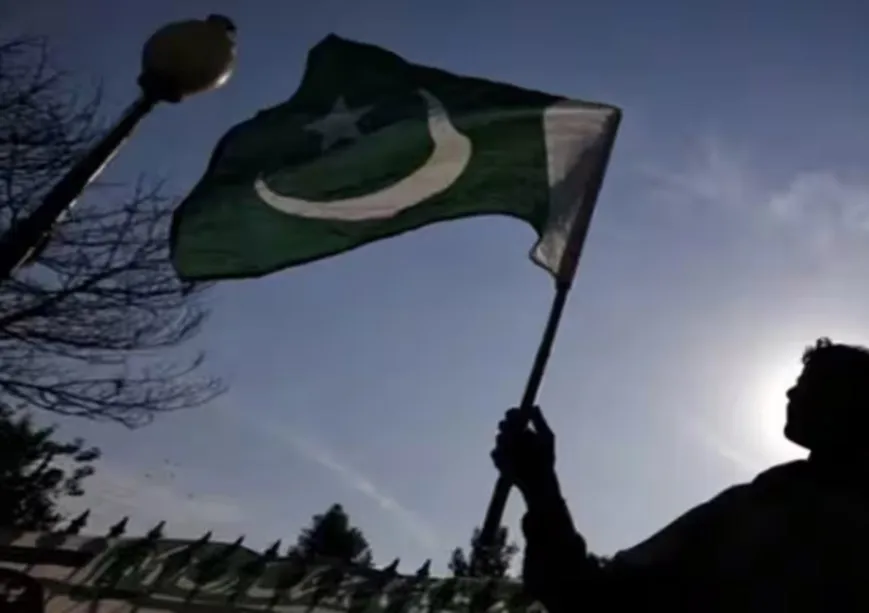-
CENTRES
Progammes & Centres
Location
This return to business as usual is reflective of the wariness on both sides to escalate the crisis further and prevent it from metastasising into a new front of conflict.

Ties between Iran and Pakistan recently received an unprecedented blow. On January 16, Iran launched ‘missile and drone strikes’ on the Jaish Al Adl group—which had its hideouts in Panjgur, in Pakistan’s Baluchistan province and had previously carried out attacks inside Iran. In the days that followed, the bilateral relationship catapulted from a downgrading of the diplomatic relationship and launch of retaliatory strikes by Pakistan to finally calls for de-escalation. On January 22, both sides announced the return of their ambassadors to their respective posts by the end of the week, after a telephonic conversation between the foreign ministries. The Pakistani foreign minister also extended an invitation to his Iranian counterpart, Hossein Amir-Abdollahian to pay a visit to Pakistan later this month. Both agreed to focus on resolving minor irritants through mutual trust and dialogue and use the pre-existing channels of communication to defuse any tensions. This return to business as usual is reflective of the wariness on both sides to escalate the crisis further and prevent it from metastasising into a new front of conflict.
Both agreed to focus on resolving minor irritants through mutual trust and dialogue and use the pre-existing channels of communication to defuse any tensions.
Deeming the strikes an ‘illegal’ and ‘unprovoked’ act targeting its sovereignty and territorial integrity, Pakistan reiterated its resolve to respond. As fears about a new conflagration erupting between the neighbours gained ground, Islamabad first recalled its ambassador and expelled the Iranian envoy, putting on hold all upcoming high-level meetings between the two sides. It subsequently launched retaliatory strikes—‘an intelligence operation’—on the Baluchistan Liberation Front and the Baluchistan Liberation Army hideouts in Iran’s Sistan-Baluchistan province. While these tit-for-tat strikes heightened concerns about the two neighbours reaching a point of no return, calls for ‘de-escalation’ followed soon after with emphasis on the fraternal relations between the two countries.
Historically, both Pakistan and Iran have had differences over the presence of groups inimical to the other finding refuge within each other’s borders. The border between the two countries has seen multiple skirmishes and cross-border strikes over the years. But, for Pakistan, the timing of the recent strikes couldn’t have been more unfavourable. The last few years have seen Islamabad’s domestic situation slip from bad to worse with no respite in sight. The ouster of Imran Khan, the attacks on symbols associated with the military, the fast deteriorating economic condition of the country, the challenge posed by the Tehreek-i-Taliban Pakistan (TTP) and the military’s inability to control it, the delay in the national elections—all have pushed the country over the edge. Even before the strikes, there were concerns about the successful conclusion of the elections in February. Pakistan’s domestic situation influenced its decision to cautiously flex its muscles and then ultimately call for restraint.
The strikes were thus aimed at giving a message: Despite its internal crisis, Pakistan wouldn’t refrain from acting when its sovereignty is undermined.
With the military establishment navigating the challenges posed by the TTP in parallel with the internal turmoil in the country, the failure to launch a strong and decisive counter-attack would have further dented their prestige in the country. It would have also encouraged and nudged groups against Pakistan to ramp up their attacks. The strikes were thus aimed at giving a message: Despite its internal crisis, Pakistan wouldn’t refrain from acting when its sovereignty is undermined. The country’s caretaker Prime Minister also had a meeting with the top civilian and military leaders to discuss the crisis and lauded the ‘professional, calibrated, and proportionate response by the armed forces of Pakistan.’ But beyond this performative muscle-flexing, Islamabad had little choice but to tame down its response.
Since the return of the Taliban in Afghanistan, Pakistan’s hopes of finally attaining its much-touted strategic depth have failed miserably. The TTP, an ideological offshoot of the Afghan Taliban has wreaked chaos in the country—with its attacks on security officials and civilians alike. Both Khyber Pakhtunkhwa and Baluchistan provinces have experienced attacks almost daily. Islamabad’s efforts to prod the Afghan Taliban to restrain the group and broker a ceasefire have fallen on deaf ears.
According to the Taliban, the TTP is Pakistan’s internal problem and it has no leverage over the group. But while the latter statement is far from true—considering the Afghan Taliban’s support to the TTP—its unwillingness to act against the group shows how Pakistan’s policy of supporting and cultivating terrorist groups for its regional influence has come back to bite it. Its relations with the Islamic Emirate are now far removed from what Islamabad had hoped when it provided support to the Taliban. Strained relations with its eastern neighbour along with a stalemate with India—with relations ‘on freeze’ since 2019—had already isolated the country. Iran’s strikes on the Jaish al Adl group were also in response to the group’s attack on a police station in the Sistan Baluchistan province in December 2023, killing 11 security officials. After the strikes by Iran, India also restated its policy of zero tolerance against terrorism and that it understands the actions that countries take in ‘self-defence’, an acknowledgement of Iran’s genuine concerns about Pakistan’s sponsorship of terrorist groups. Despite calls for dismantling its networks of proxies and its material and financial support to different terror groups, Pakistan has consistently failed to take decisive actionwith different terror outfits with disparate aims and intentions finding a safe haven in the country. But after the strikes by Iran, it finds itself more isolated than ever in the region, an isolation that is self-inflicted and poses serious long-term challenge.
Its relations with the Islamic Emirate are now far removed from what Islamabad had hoped when it provided support to the Taliban.
Even though Pakistan aimed to project its strength and establish its deterrence in the face of an attack, owing to its domestic and external security considerations it couldn’t afford to escalate it any further. As the crisis in West Asia continues unabated, the international community is also fearful about the prospect of the emergence of a new frontier of conflict. With both Pakistan and Iran grappling with internal challenges and a hostile external environment, there is no appetite for a full-blown conflict for either of them. Even as the relations return to the status quo with the resumption of diplomatic engagements, the underlying issue- the proliferation of terror groups inside Pakistan- can isolate Islamabad even further and compound its difficulties.
This commentary originally appeared in Financial Express.
The views expressed above belong to the author(s). ORF research and analyses now available on Telegram! Click here to access our curated content — blogs, longforms and interviews.

Professor Harsh V. Pant is Vice President – Studies and Foreign Policy at Observer Research Foundation, New Delhi. He is a Professor of International Relations ...
Read More +
Shivam Shekhawat is a Junior Fellow with ORF’s Strategic Studies Programme. Her research focuses primarily on India’s neighbourhood- particularly tracking the security, political and economic ...
Read More +